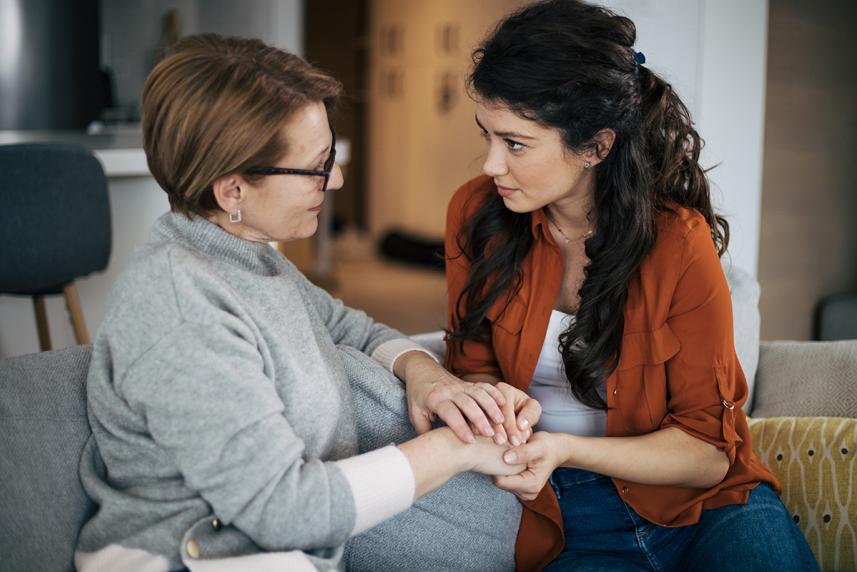Signs of depression in children, teens, and adults
Do you ever feel less than festive during the holidays? The winter blues can happen to the best of us. But if you’ve been feeling more irritable, having trouble concentrating, or struggling to sleep, it may actually be indicative of depression.

Depression can happen to anyone, at any age. That's why it's important to know what the symptoms are for each age group. The good news is once it’s identified, depression is highly treatable. In fact, the American Psychiatric Association cites depression as one of the most treatable mental health conditions. Here’s a look at common signs and symptoms within different age groups.
Children with depression
If a child in your life is more argumentative, grouchy, or easily annoyed than usual, they could be demonstrating signs of depression. They may seem more tired, surprisingly agitated, and may have trouble concentrating in school. Other signs of depression in children may include the following:
- Feeling inadequate, guilty, or worthless.
- Self-injury or self-destructive behaviors.
- Angry outbursts or tantrums.
It’s important to note that children struggling with depression may cover it up very well. Talking with your child’s doctor about options for therapy could make a big difference in both your child’s life and in your family dynamic.
Teenagers with depression
Grades dropping? Energy levels low? These and other changes in a teen’s behavior could be symptoms of depression. With that in mind, take note: if a teenager in our life comes across as lacking in motivation or simply not at all enthusiastic, especially about things that used to interest them, it is worth a conversation with their doctor.
Other signs of depression may include the following:
- Often restless or agitated.
- Overreacting to criticism.
- Using substances like alcohol or drugs.
- Poor self-esteem.
- Not taking care of their appearance.
If you’re concerned your child or teen is thinking or talking about suicide, be sure to take action immediately and contact a medical professional for advice on next steps.
Adults with depression
According to the American Psychiatric Association, about one out of every 15 adults struggles with depression. This mental health condition can reveal itself in so many ways, including feelings of annoyance, frustration, or irritability. Feelings of worthlessness and guilt can also find their way in during a bout with depression.
Here’s a look at some other common symptoms of depression in adults:
- Often feeling angry.
- Loss of interest in socializing and hobbies.
- Feeling restless, agitated, or sluggish.
- Having trouble concentrating, remembering, and making decisions.
While depression most often appears during a person’s late teens to mid-20s, it can happen at any point in life. And if you have a first-degree relative (parent, child, or sibling) who struggles with depression, you have a 40% chance of sharing that struggle.
If you see any of these signs in a loved one or yourself, reach out to a health care provider right away.
Postpartum depression
It’s worth noting another, sometimes overlooked, area of depression: postpartum depression. While postpartum depression is most common in the first three months after giving birth, some women experience it up to a year later. According to the U.S. Department of Health & Human Services Office on Women’s Health, about one out of nine new mothers will experience postpartum depression.
Symptoms of postpartum depression can include feeling overwhelmed, feeling a sense of emptiness, and sometimes even feeling a detachment from the baby. Other things to look out for are panic attacks, decreased interest in activities, and guilt, anger, or self-doubt. Sometimes postpartum depression is accompanied by changes in sleep or eating.
Getting to a healthy place
If you’re seeing signs like the ones listed above, you, or your loved one may benefit from talking with a mental health professional. They can provide the support you need or point you in the right direction to a better, and happier, tomorrow.

